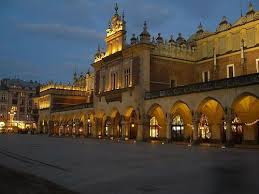That was the case of Gena Turgel who died earlier this month.
 |
| Gena Turgel meets the Queen at Buckingham Palace on 28 May 2015 |
When the Nazis occupied the city, Gena’s family was forced to give up its textile business and move into the newly designated ghetto. One of her brothers was shot there and another escaped, but no one heard from him again. From the ghetto, the survivors in the family were moved to Plaszow labour camp, made famous – or infamous – by the film Schindler’s List.
Her sister and brother-in-law were caught by the Nazis trying to smuggle food into the camp and executed by them.
From there, Gena was marched in 1944 to the extermination camp at Auschwitz-Birkenau, but instead of being gassed was sent on a death march to the camp at Buchenwald. She survived that too, and was finally moved to Bergen-Belsen.
There she nursed Anne Frank through the typhus that killed her.
Appalling experiences that no human should suffer, especially when they are completely unnecessary and merely inflicted by other humans. That is, humans who have lost their humanity.
Fortunately, she didn’t lose hers. Among the first allied soldiers who liberated Bergen-Belsen was a young Jewish sergeant in the British Army, Norman Turgel. I assume he was really a Nathan, like my grandfather, who was also often called Norman by his gentile friends (or non-friends). Norman met Gena in the Infirmary. He apparently found her attractive enough to want to invite her to dinner.
The dinner was in a British Officers’ mess. The tables were covered with crisp white linen, shining cutlery and vases of flowers. For someone who had spent over five years in concentration camps, the sight was difficult to take in. But Norman had an explanation ready.
‘This is your engagement party,’ he told her.
As Gena would tell the story, he had decided on first meeting her that they would marry. As indeed they did, within six months, and, by special permission, inside the Bergen-Belsen camp. That won her the title she kept ever after: the Bride of Belsen. She even had a silk wedding dress, made from a British army parachute.
 |
| Norman and Gena Turgel He in battledress, she in the parachute-silk wedding dress |
She died on 7 June this year, at the age of 95. Having lived a long life marked by early and terrible suffering. But which she turned to great value.
My thanks to the BBC, via my wife, who heard it on the radio. At a time when we have an Italian Interior Minister prepared to leave people to drown in the Med rather than let them land, and a US President who sees nothing wrong in forcibly separating children from parents and keeping them in cages, we badly need to be reminded of humans who kept their humanity.
It’s a wonderful relief.
 |
| The parachute-silk wedding dress Preserved in the Imperial War Museum, London |
